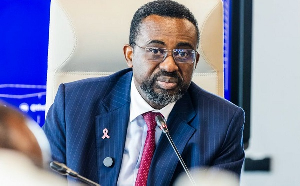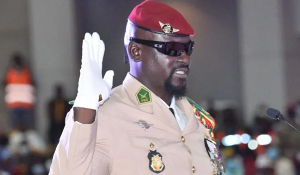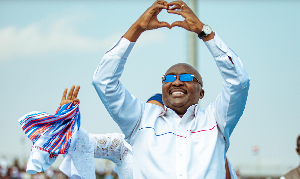Yaw Obeng Manu, the Editor of the Ghanaian Publisher, has asked Ghanaian politicians to forget about ending ‘galamsey’ in Ghana if they refuse to show political will in the fight against illegal mining.
The editor posited that a lot has been achieved when political actors expressed political will and one direction in some issues. Yaw believes that if this same attitude is carried over into the fight against illegal mining, the journey will be a successful one.
He shared this opinion in an interview with Samuel Eshun on the Happy Morning Show aired on e.TV Ghana and Happy98.9FM.
“We should be real and honest here and question ourselves if we have the political will. For us to be successful in this project, that political will must be present. We can always use the creation of the regions as a case in point. In the creation of the regions, when the two political parties the NPP and the NDC as well as the chiefs said they were on board, it became a success because politically it was going to be beneficial.
When it comes to issues about galamsey, are we going to have that political will? Do these politicians care about the environment or the water that way?”.
Yaw Obeng Manu furthered that the recent National Consultative Dialogue on Small Scale Mining was a great initiative for “the sake of awareness”. However, more is required of politicians if we are to fight galamsey and protect our environment.
The Ministry of Lands and Natural Resources held a two-day National Consultative Dialogue on Small-Scale Mining which spanned from Wednesday, April 14 to 15, 2021.
The Dialogue aimed at forging a broad-based consensus and a workable blueprint to promote sustainable mining practices and stem the tide of illegal small-scale mining in the country.
Among the key stakeholders present were the Ghana Association of Small-Scale Miners, Ghana Chamber of Mines, chiefs from the 16 regions, members of the Council of State, members of the National House of Chiefs, Former Ministers of Lands and Natural Resources, heads of state institutions, academia, representatives of political parties, civil society organizations and captains of industry.
General News of Tuesday, 20 April 2021
Source: happyghana.com













